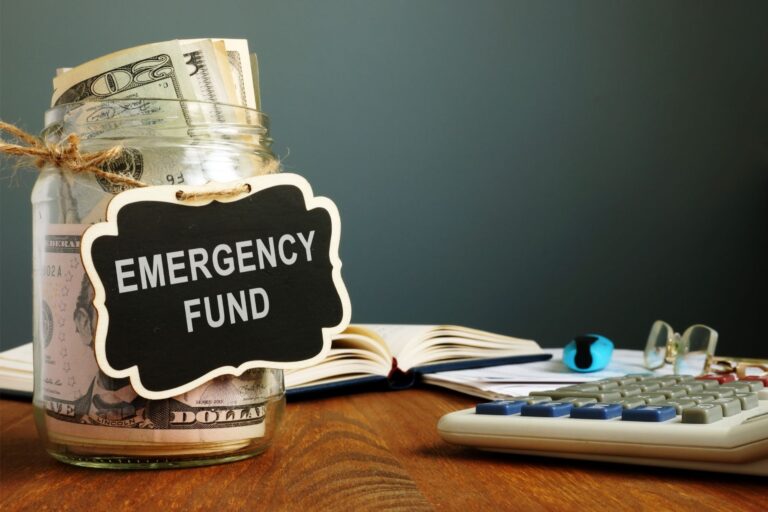Importance Of Financial Planning: What It Is, Steps To Plan, & Its Benefits

If you’ve ever stared at your bank account wondering where all your money went, you’re definitely not alone. I’ve been there, and trust me, it’s not a fun place to be. The good news? Understanding the importance of financial planning can completely change your relationship with money.
Think about it this way: you wouldn’t start a road trip without knowing your destination or at least having Google Maps open, right? So why would you navigate your financial life without a plan?
Financial planning isn’t some fancy term reserved for Wall Street folks in expensive suits. It’s for you, me, and everyone who wants to stop feeling anxious every time they check their account balance.
Whether you’re fresh out of college drowning in student loans, a parent trying to juggle a million expenses, or someone who just wants to finally take control of their money, this guide is going to walk you through everything you need to know.
No complicated jargon, no boring lectures, just real talk about how to get your finances in order.
What Is Financial Planning?
Before we get into the importance of financial planning, let’s break down what it actually means. And no, it’s not just about creating a budget and calling it a day (though that’s part of it).
Financial planning is basically creating a game plan for your money. It’s about figuring out where you are right now, where you want to be, and mapping out the steps to get there. Simple as that.
Here’s what financial planning helps you answer:
- Where is all my money disappearing to each month?
- What financial goals do I actually want to achieve?
- How do I prepare for emergencies without panicking?
- What steps will help me build real, lasting wealth?
And here’s the thing that might surprise you: financial planning isn’t just for people making six figures. Whether you’re earning $30,000 or $300,000, having a plan gives you clarity and control. It’s about making your money work smarter, not just working harder for your money.
Think of financial planning as your money’s GPS. Without it, you’re just driving around hoping you’ll eventually end up somewhere good. With it, you know exactly which turns to take and when.
Why Financial Planning Matters
Alright, so why should you even care about the importance of financial planning? What’s the big deal, really?
Well, money touches literally every part of your life. Where you live, what you eat, how you spend your weekends, whether you can sleep peacefully at night without worrying about bills. Yet so many of us just wing it when it comes to managing our finances. That’s like trying to build a house without blueprints and hoping it doesn’t collapse. Spoiler alert: it probably will.
It Gives You Direction
Without a financial plan, you’re basically living paycheck to paycheck, constantly reacting to whatever financial crisis pops up next. Your car breaks down? Panic. Unexpected medical bill? More panic. It’s exhausting.
Financial planning helps you shift from reactive mode to proactive mode. You’re not just surviving anymore, you’re actually working toward something meaningful. Whether that’s buying a house, traveling the world, or just having enough saved so you can breathe easier.
It Helps You Make Smarter Decisions
Ever stood in a store debating whether you should buy something, feeling completely torn? Or wondered if you should invest that bonus or use it to pay off debt? These decisions become so much easier when you have a financial plan.
Your plan acts like a filter for every money decision you make. Instead of guessing or going with your gut (which, let’s be real, usually just wants to buy stuff), you can check in with your plan and make choices that actually support your goals.
It Reduces Stress
Money stress is real, and it’s one of the top causes of anxiety for people everywhere. But here’s what I’ve learned: most of that stress doesn’t come from not having enough money. It comes from not knowing where your money is going or feeling out of control.
When you have a solid financial plan, you know your bills are covered. You know you’re saving for the future. You know that if something unexpected happens, you’ve got a safety net. That peace of mind? Absolutely priceless.
It Prepares You For The Unexpected
Life loves throwing curveballs. Job losses, medical emergencies, car repairs that cost more than your car is worth (why does this always happen?). Without preparation, these situations can completely derail your finances.
A good financial plan includes emergency funds and insurance coverage so when life gets messy, your finances don’t have to. You’ll have cushions in place to catch you when you fall.
It Helps Build Wealth Over Time
Here’s something that blew my mind when I first learned it: small, consistent actions compound into massive results over time. Saving $50 a week doesn’t sound like much, right? But over a year, that’s $2,600. Over ten years, that’s $26,000, and that’s before any investment returns.
Financial planning ensures you’re not just working hard for your money, but your money is actually working hard for you too. Through smart saving and investing strategies, you can build real wealth even on a modest income.
How To Start Financial Planning
Now that you understand the importance of financial planning, let’s talk about how to actually do it. No more theory, let’s get practical. These steps will help you take control of your money and build a future you’re excited about.
1. Set Clear Financial Goals

This is where everything starts. You can’t plan a journey if you don’t know where you’re going, right?
Financial goals give your plan purpose and direction. Without them, you’re just randomly moving money around and hoping for the best. And trust me, hope is not a strategy.
The best way to set goals is using the SMART method:
- Specific: Don’t just say “I want to save money.” Say “I want to save $5,000.”
- Measurable: You need to track your progress.
- Achievable: Be realistic. Saving $100,000 in six months on a $40,000 salary probably isn’t happening.
- Relevant: Your goals should matter to YOU, not what society says you should want.
- Time-bound: Give yourself a deadline.
Break your goals into three categories: short-term (under a year), mid-term (1-5 years), and long-term (5+ years). Maybe your short-term goal is building a $1,000 emergency fund. Your mid-term goal might be saving for a down payment on a house. And your long-term goal could be retiring comfortably.
Write these goals down. Seriously, grab a notebook or open a note on your phone right now and write them down. There’s something powerful about seeing your goals in writing. It makes them real.
2. Assess Your Current Financial Situation

Okay, this step can feel a little uncomfortable. It’s like stepping on the scale after the holidays. But you need to know where you’re starting from before you can move forward.
Time for a financial reality check. Gather all your financial information: bank statements, credit card bills, loan documents, investment accounts, everything.
Create a simple snapshot that includes:
- Your total monthly income (after taxes)
- All your fixed expenses (rent, insurance, loan payments)
- Your variable expenses (groceries, entertainment, that coffee habit)
- Outstanding debts (credit cards, student loans, car loans)
- Current savings and investments
You can use a simple spreadsheet, a notes app, or budgeting tools like Mint or Personal Capital to organize this information.
This snapshot shows you exactly how much money is coming in, where it’s going, and what you’re working with. Many people find this step eye-opening. You might discover you’re spending $200 a month on subscriptions you forgot you had or that your daily coffee runs are costing you over $1,000 a year.
3. Create A Budget That Works For You

Here’s where people usually groan. “A budget? That sounds restrictive and boring.”
But here’s the truth: a budget isn’t about restriction. It’s about permission. It’s you telling your money where to go instead of wondering where it went. It’s freedom, not a financial prison.
The key is finding a budgeting method that fits your lifestyle. Here are some popular approaches:
The 50/30/20 Rule: This is super simple. Allocate 50% of your income to needs (rent, utilities, groceries), 30% to wants (dining out, hobbies, entertainment), and 20% to savings and debt repayment. It’s a great starting point if you’re new to budgeting.
Zero-Based Budgeting: Every single dollar gets a job. You assign all your income to specific categories until you reach zero. This method gives you maximum control and awareness of where every penny goes.
Pay Yourself First: Automatically transfer money to savings as soon as you get paid, then budget the rest for expenses. This ensures saving isn’t an afterthought.
Choose the method that resonates with you. Don’t forget to include categories for fun stuff too. If your budget feels like punishment, you won’t stick to it. Give yourself permission to enjoy life while still being responsible.
Tools like YNAB (You Need A Budget), EveryDollar, or even a simple Excel spreadsheet can help you stay on track. Review your budget weekly at first, then monthly once you get the hang of it. Adjust as needed because life changes and your budget should too.
4. Build An Emergency Fund

If there’s one thing that screams “importance of financial planning,” it’s having an emergency fund. This is your financial safety net, your “stuff happens” fund, your peace-of-mind account.
Life is unpredictable. Your car will break down at the worst possible time. Your water heater will die. You might lose your job. These aren’t pessimistic thoughts, they’re just reality. The question isn’t if something unexpected will happen, it’s when.
Your emergency fund protects you when life gets messy. It means you won’t have to put emergencies on a credit card and pay interest for months or years.
Start by aiming to save 3-6 months of essential living expenses. That includes rent or mortgage, utilities, groceries, insurance, transportation, and minimum debt payments. If that number feels overwhelming (and it probably does), don’t panic.
Start small. Aim for $500 first, then $1,000, then keep building. Even $500 can cover many common emergencies and prevent you from going into debt.
Keep this money in a separate high-yield savings account. You want it easily accessible for real emergencies, but not so accessible that you’re tempted to dip into it for non-emergencies. (No, those shoes on sale don’t count as an emergency, no matter how cute they are.)
Banks like Ally, Marcus by Goldman Sachs, and Discover offer high-yield savings accounts with much better interest rates than traditional banks.
5. Start Saving And Investing Early

Here’s where things get exciting. Saving is important, but investing? That’s how you actually build wealth and achieve financial independence.
The earlier you start investing, the better, thanks to compound interest. Einstein allegedly called compound interest the eighth wonder of the world, and honestly, he wasn’t wrong. It’s basically earning returns on your returns, and over time, it snowballs into serious money.
Let me give you a real example: If you invest $200 a month starting at age 25 with an average 7% annual return, by age 65 you’d have around $525,000. If you wait until 35 to start, you’d only have about $244,000. That ten-year delay costs you over $280,000. Wild, right?
Start with a solid savings foundation (your emergency fund), then move into investing. Here’s a simple path forward:
Retirement Accounts: If your employer offers a 401(k) with matching contributions, contribute at least enough to get the full match. That’s literally free money. Then consider opening an IRA (Individual Retirement Account) or Roth IRA for additional retirement savings with tax advantages.
Index Funds and ETFs: These are perfect for beginners because they’re diversified, low-cost, and don’t require you to pick individual stocks. They track the overall market, so you’re essentially betting on the economy’s long-term growth.
Robo-Advisors: Platforms like Betterment, Wealthfront, or Acorns make investing super easy. They automatically create and manage a diversified portfolio based on your goals and risk tolerance.
The key is to start now, even if it’s just $25 or $50 a month. Consistency beats timing. You don’t need to wait until you have thousands of dollars or until you “understand the market better.” Start small, learn as you go, and let time do the heavy lifting.
6. Get Proper Insurance Coverage

Okay, insurance isn’t sexy. I get it. But understanding the importance of financial planning means understanding that protecting your money is just as important as growing it.
Think about it: you could spend years building savings and investments, only to have one medical emergency, car accident, or house fire wipe it all out. Insurance is your financial protection plan.
Here are the essential types of insurance you should have:
Health Insurance: Medical bills are one of the leading causes of bankruptcy. Even if you’re young and healthy, you need coverage. One unexpected hospital visit can cost tens of thousands of dollars.
Auto Insurance: If you drive, this is legally required in most places. Make sure you have adequate coverage, not just the minimum.
Renters or Homeowners Insurance: Protects your belongings and provides liability coverage. Renters insurance is surprisingly affordable, often around $15-30 per month.
Life Insurance: If anyone depends on your income (spouse, kids, aging parents), you need life insurance. Term life insurance is affordable and provides a death benefit to your beneficiaries if something happens to you.
Disability Insurance: This replaces a portion of your income if you become unable to work due to illness or injury. Many people overlook this, but your ability to earn income is your most valuable asset.
Review your insurance policies annually or whenever your life circumstances change. Getting married, having kids, buying a house, or starting a business are all triggers to reassess your coverage.
Don’t just go with the cheapest option. Compare coverage limits, deductibles, and exclusions. Sometimes paying a bit more gives you significantly better protection.
7. Plan For Retirement

Retirement might feel like a lifetime away, especially if you’re in your 20s or 30s. But here’s the thing: the sooner you start planning, the easier it becomes and the more freedom you’ll have later.
Retirement planning isn’t just about quitting work. It’s about having the financial freedom to choose how you spend your time. Want to travel? Pursue hobbies? Spend time with grandkids? Start a passion project? Retirement planning makes all of that possible.
Start by estimating how much you’ll need. A common rule of thumb is to aim for 70-80% of your current annual income, adjusted for inflation. So if you’re currently living on $50,000 a year, you’d want around $35,000-$40,000 annually in retirement.
Use online retirement calculators (there are free ones on Fidelity or Vanguard) to set a target based on your age, current savings, and retirement goals.
Then focus on these key strategies:
- Contribute to retirement accounts: Max out your 401(k) match, then contribute to IRAs. These accounts offer tax advantages that supercharge your savings.
- Increase contributions over time: Whenever you get a raise, increase your retirement contributions by at least half of that raise.
- Diversify your investments: Don’t put all your eggs in one basket. Spread your investments across different asset classes.
- Consider healthcare costs: Healthcare in retirement can be expensive. Factor this into your planning.
FYI, if early retirement sounds appealing, it’s totally achievable with aggressive saving and smart investing. The FIRE (Financial Independence, Retire Early) movement has shown that with dedication, you can retire in your 40s or even 30s.
8. Revisit And Adjust Regularly
Here’s something crucial about the importance of financial planning: it’s not a “set it and forget it” thing. Your financial plan is a living document that should evolve with you.
Life changes constantly. You get a new job. You move to a new city. You get married or divorced. You have kids. Your priorities shift. The economy fluctuates. If your financial plan doesn’t change with these circumstances, it becomes outdated and ineffective.
Make it a habit to review your financial plan at least once a year. Put it on your calendar like any other important appointment. Many people do this at the beginning of the year or on their birthday.
During your review, ask yourself:
- Are my goals still the same, or have they changed?
- Has my income increased or decreased?
- Am I spending more or less than I planned?
- Am I on track with my savings and investments?
- Do I need to update my insurance coverage?
- Have there been any major life changes I need to account for?
Update your budget, reassess your goals, and make course corrections as needed. Think of it like a GPS that recalculates your route when you take a wrong turn. Your financial plan should do the same thing.
Also, review your plan whenever you experience a major life event: new job, marriage, divorce, birth of a child, death of a family member, major health diagnosis, or significant windfall. These moments require immediate attention to your financial plan.
7 Key Benefits Of A Financial Plan
Let’s talk about the tangible benefits you’ll experience when you embrace the importance of financial planning. These aren’t just theoretical advantages, they’re real improvements you’ll notice in your daily life.
1. Better Control Over Spending
Ever reached the end of the month wondering where all your money went? With a financial plan, those days are over.
When you track your spending and budget intentionally, you gain complete visibility into where every dollar goes. You’ll spot spending leaks you didn’t even know existed. Those $5 coffees that add up to $150 a month? That gym membership you haven’t used in six months? Subscriptions you forgot you had?
A financial plan helps you align your spending with your values and goals. You’re not depriving yourself, you’re just being intentional. You’ll find yourself asking, “Does this purchase support my goals?” before swiping your card. That simple question is a game-changer.
2. Clearer Path To Achieving Goals
Want to buy a house? Send your kids to college? Take that dream vacation to Italy? A financial plan transforms these wishes into achievable goals with concrete steps.
Instead of vaguely hoping things will work out, you’ll have a roadmap. You’ll know exactly how much you need to save each month, how long it will take, and what adjustments you might need to make along the way.
There’s something incredibly motivating about tracking your progress toward a goal. Watching your down payment fund grow from $500 to $5,000 to $15,000 keeps you motivated and focused. You’re not just dreaming anymore, you’re doing.
3. Reduced Stress And Anxiety Around Money
Money stress is exhausting. It keeps you up at night, affects your relationships, and impacts your mental health. But here’s what I’ve discovered: most money stress comes from uncertainty, not from actual lack of money.
When you have a financial plan, you replace uncertainty with structure. You know your bills are covered. You know you’re saving for emergencies. You know you’re working toward your goals. Even if your financial situation isn’t perfect, having a plan gives you confidence that you’re moving in the right direction.
That shift from reactive anxiety to proactive confidence? It’s life-changing. You’ll sleep better, worry less, and feel more in control of your life overall.
4. Preparedness For Emergencies
Remember those curveballs life loves to throw? With a solid financial plan that includes emergency savings and proper insurance, you’re ready for them.
When your car breaks down, instead of panicking about how you’ll pay for repairs, you calmly use your emergency fund. When you need an unexpected medical procedure, your insurance and savings cushion the blow. When you lose your job, your emergency fund gives you breathing room to find the right next opportunity instead of desperately taking the first thing available.
This preparedness doesn’t just protect your finances, it protects your peace of mind. You face life’s challenges with confidence instead of fear.
5. Improved Credit And Debt Management
A financial plan helps you tackle debt strategically and build excellent credit in the process.
Instead of making random payments and hoping for the best, you’ll have a clear debt payoff strategy. Whether you choose the debt snowball method (paying off smallest debts first) or the debt avalanche method (tackling highest interest rates first), you’ll have a plan and you’ll stick to it.
With better budgeting, you’ll avoid late payments that damage your credit score. You’ll keep your credit utilization low. You’ll build a strong payment history. Over time, your credit score improves, which opens doors to better interest rates on loans, easier approval for rentals, and even better job opportunities (some employers check credit).
6. Faster Wealth-Building And Financial Independence
Here’s where the importance of financial planning really shines. When you’re intentional about saving and investing, your wealth grows exponentially faster than if you’re just winging it.
A financial plan ensures you’re consistently saving and investing, not just when you remember or when you have “extra” money. You’re taking advantage of compound interest. You’re optimizing your tax situation. You’re avoiding costly mistakes. You’re making your money work as hard as you do.
Over time, these smart decisions compound into serious wealth. What starts as saving $200 a month can grow into hundreds of thousands of dollars over decades. That’s not luck, that’s planning.
Financial independence, the point where you have enough wealth to cover your expenses without working, becomes achievable. Maybe not overnight, but it’s on the horizon instead of being a fantasy.
7. Peace Of Mind For You And Your Family
Perhaps the greatest benefit of financial planning is the peace of mind it brings, not just for you, but for your loved ones too.
When you have life insurance, your family won’t face financial hardship if something happens to you. When you have an estate plan, your assets will be distributed according to your wishes. When you’re saving for your kids’ education, you’re giving them opportunities and reducing their future debt burden.
You’re not just securing your own future, you’re creating stability and security for the people you care about most. That’s powerful. That’s what the importance of financial planning is really about: building a life that supports your values and protects what matters most.
Final Thoughts
Look, I’m not going to pretend that financial planning is always fun or easy. Sometimes it’s uncomfortable. Sometimes you have to make tough choices between what you want now and what you want most. Sometimes you have to face financial realities you’d rather ignore.
But here’s what I know for sure: understanding and embracing the importance of financial planning is one of the most empowering things you can do for yourself. It’s not about being perfect with money. It’s not about never making mistakes. It’s about being intentional, informed, and in control.
Financial planning isn’t reserved for wealthy people or financial experts. It’s for anyone who wants to stop feeling anxious about money and start feeling confident. It’s for anyone who has goals and dreams they want to achieve. It’s for anyone who wants to build a life that aligns with their values.
The best part? You don’t need to have everything figured out before you start. You don’t need a finance degree. You don’t need thousands of dollars saved. You just need to start where you are, with what you have, and take one small step forward.
Maybe that step is setting up a budget this week. Maybe it’s opening a high-yield savings account. Maybe it’s just writing down your financial goals for the first time. Whatever it is, that step matters. It’s the beginning of your journey toward financial confidence and freedom.
So stop waiting for the perfect time or thinking you need to have it all together first. Start today. Start messy. Start small. Just start. Every step you take today brings you closer to the financial peace and freedom you deserve tomorrow.
Your future self will thank you. Trust me on this one. 🙂








